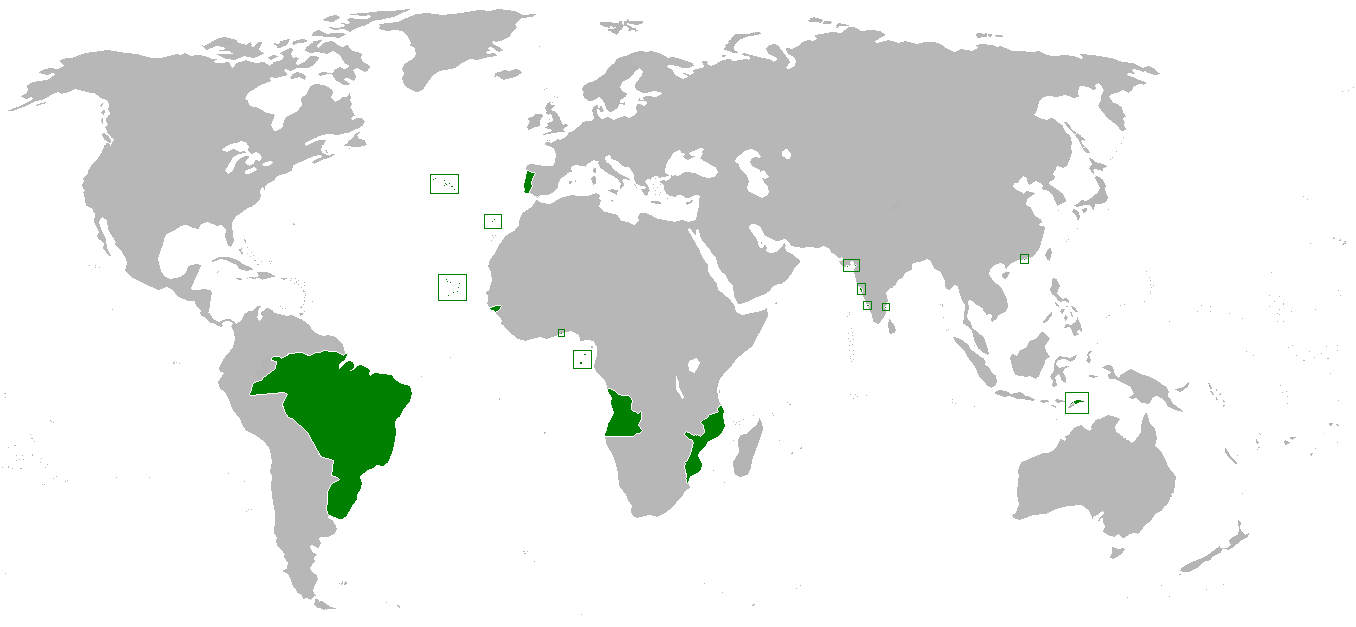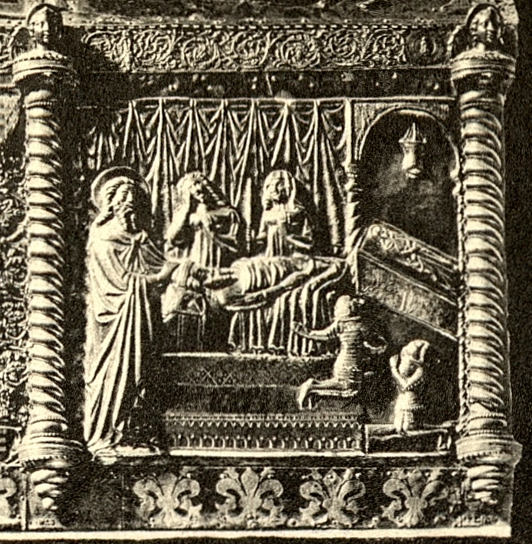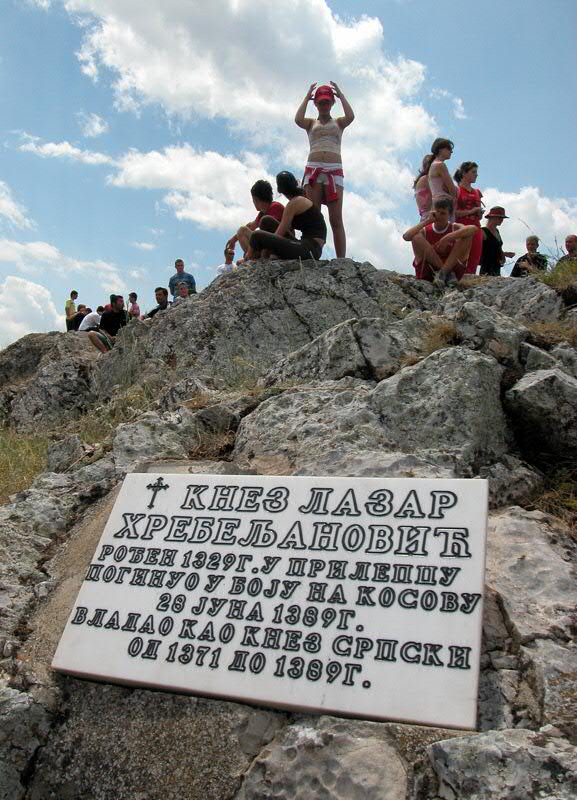|
Nikola Altomanović
Nikola Altomanović ( sr-Cyrl, Никола Алтомановић; died after 1395) was a 14th-century Serbian župan of the House of Vojinović. He ruled the areas from Rudnik, over Polimlje, Podrinje, east Herzegovina with Trebinje, reaching as far as Konavle and Dračevica, neighboring the Republic of Dubrovnik. He was defeated and blinded in Užice ( fortress Užice) in 1373 by a coalition of his Serbian and Bosnian royals neighbors supported by the king of Hungary. Biography His father was Altoman Vojinović, a vojvod in Zeta. In 1363, Nikola's uncle Vojislav Vojinović was killed and Nikola used his uncle's death to gain a piece of his land. He allied himself with Lazar Hrebeljanović against King Vukašin Mrnjavčević and they managed to persuade Uroš to support them. However, after Lazar pulled out at the critical moment they were defeated at Kosovo in 1369. In 1373, a military alliance against Nikola was created, which included Bosnian Ban Tvrtko I Kotromani� ... [...More Info...] [...Related Items...] OR: [Wikipedia] [Google] [Baidu] |
Realm Of Vojislav Vojinović And Nikola Altomanović
A realm is a community or territory over which a sovereign rules. The term is commonly used to describe a monarchical or dynastic state. A realm may also be a subdivision within an empire, if it has its own monarch, e.g. the German Empire. Etymology The Old French word ''reaume'', modern French ''royaume'', was the word first adopted in English; the fixed modern spelling does not appear until the beginning of the 17th century. The word supposedly derives from medieval Latin ''regalimen'', from ''regalis'', of or belonging to a ''rex'' (king). The word ''rex'' itself is derived from the Latin verb ''regere'', which means "to rule". Thus the literal meaning of the word ''realm'' is "the territory of a ruler", traditionally a monarch (emperor, king, grand duke, prince, etc.). Usage "Realm" is particularly used for those states whose name includes the word ''kingdom'' (for example, the United Kingdom), as elegant variation, to avoid clumsy repetition of the word in a sentence (fo ... [...More Info...] [...Related Items...] OR: [Wikipedia] [Google] [Baidu] |
Altoman Vojinović
Altoman Vojinović ( sr, Алтоман Војиновић; 1335–59) was a Serbian magnate ('' velikaš'') who served Emperor Stefan Dušan (r. 1331–55) as ''župan'' ("count") and Emperor Uroš V (r. 1355–71) as '' veliki župan'' ("grand count"). His father Vojin was a general (''vojvoda'') with the title of ''knez'', while his younger brother Vojislav also had the title of ''knez''. Life Altoman was the middle son of Vojin, a general that served King Stefan Dečanski and King Stefan Dušan and held the title of ''knez'' of Hum. Vojin was one of the more powerful nobles of King Stefan Dečanski, while his sons, Miloš, Altoman and Vojislav, were in Young King Dušan's circle. With the conflict between the King and his son, however, Vojin and other noblemen joined the Young King (1330–31). Vojin's support of Dušan further elevated the Vojinović family. In 1333, King Dušan sent the eldest son, Miloš, to Ragusa as part of the negotiation team. After the death ... [...More Info...] [...Related Items...] OR: [Wikipedia] [Google] [Baidu] |
Vojvoda Vojin
Vojin of Gacko or Vojvoda Vojin ( sr, Војвода Војин; fl. 1322–1347) was a Serbian magnate (''velikaš'') and ''voivode'' (military commander equivalent to duke), who was holding the area around Gacko, which was part of ''Hum'', ca.1322-1347. He was in service of King Stephen Uroš III Dečanski (r. 1322–1331) and Emperor Stephen Dušan the Mighty (r. 1331-1355). He is described as one of the most important nobles (velmoža) of King Stephen, and when the King and his son Dušan entered a succession war, Vojin supported the son. Vojin plundered Dubrovnik in August 1325, and took part in the Battle of Velbazhd (1330), and the southern military campaigns of the Serbian Empire. Vojin is the eponymous founder of the Vojinović noble family, which eventually became one of the most powerful families as provincial lords during the fall of the Serbian Empire. His sons Altoman and Vojislav were recognized as overlords of the Hum Hum may refer to: Science * Hum (sou ... [...More Info...] [...Related Items...] OR: [Wikipedia] [Google] [Baidu] |
Lazar Of Serbia
Lazar Hrebeljanović ( sr-cyr, Лазар Хребељановић; ca. 1329 – 15 June 1389) was a medieval Serbian ruler who created the largest and most powerful state on the territory of the disintegrated Serbian Empire. Lazar's state, referred to by historians as Moravian Serbia, comprised the basins of the Great Morava, West Morava, and South Morava rivers. Lazar ruled Moravian Serbia from 1373 until his death in 1389. He sought to resurrect the Serbian Empire and place himself at its helm, claiming to be the direct successor of the Nemanjić dynasty, which went extinct in 1371 after ruling over Serbia for two centuries. Lazar's programme had the full support of the Serbian Orthodox Church, but the Serbian nobility did not recognize him as their supreme ruler. He is often referred to as Tsar Lazar Hrebeljanović ( sr, Цар Лазар Хребељановић / ''Car Lazar Hrebeljanović''); however, he only held the title of prince ( sr, link=no, кнез / '' knez'') ... [...More Info...] [...Related Items...] OR: [Wikipedia] [Google] [Baidu] |
Louis I Of Hungary
Louis I, also Louis the Great ( hu, Nagy Lajos; hr, Ludovik Veliki; sk, Ľudovít Veľký) or Louis the Hungarian ( pl, Ludwik Węgierski; 5 March 132610 September 1382), was King of Hungary and Croatia from 1342 and King of Poland from 1370. He was the first child of Charles I of Hungary and his wife, Elizabeth of Poland, to survive infancy. A 1338 treaty between his father and Casimir III of Poland, Louis's maternal uncle, confirmed Louis's right to inherit the Kingdom of Poland if his uncle died without a son. In exchange, Louis was obliged to assist his uncle to reoccupy the lands that Poland had lost in previous decades. He bore the title of Duke of Transylvania between 1339 and 1342 but did not administer the province. Louis was of age when he succeeded his father in 1342, but his deeply religious mother exerted a powerful influence on him. He inherited a centralized kingdom and a rich treasury from his father. During the first years of his reign, Louis launched a cru ... [...More Info...] [...Related Items...] OR: [Wikipedia] [Google] [Baidu] |
Nicholas I Garay
Nicholas I Garai ( hu, Garai I Miklós, hr, Nikola I Gorjanski) (''c.'' 132525 July 1386) was a most influential officeholder under king Louis I and queen Mary of Hungary. He was ban of Macsó between 1359 and 1375, and palatine from 1375 until his death. He was also ''ispán'' or head of a number of counties over his lifetime. Early life Son of Andrew Garai and his wife (an unknown daughter of Ladislaus Nevnai), Nicholas Garai was born around 1325. His uncle, Pál Garai ('' ban'' of Macsó between 1320 and 1328) was a leading baron under kings Charles I and Louis I of Hungary. Nicholas's career in politics started under Louis I who appointed him to administer the Banate of Macsó in 1359. As ''ban'' of Macsó, Nicholas also became the head of Bács, Baranya, Szerém, Valkó and Veszprém counties. The influential baron Garai launched, in 1369, a punitive expedition against Vladislav I of Wallachia who had rebelled against King Louis I and defeated a royal army led by Nich ... [...More Info...] [...Related Items...] OR: [Wikipedia] [Google] [Baidu] |
Đurađ I Balšić
Đurađ I Balšić ( sr-cyr, Ђурађ I Балшић), or Gjergj Balsha I ( sq, Gjergj Balsha I) was the Lord of Zeta between 1362 and 13 January 1378. He was the eldest of the three sons of Balša I, and belonged to the Balšić family. Life Đurađ was the eldest son of Balša, a petty nobleman that held one village during the rule of Emperor Stefan Dušan (r. 1331–1355) and was said to be "kin to Nemanja". The family started taking Lower Zeta sometime following the death of Dušan in 1355. In 1362 the brothers murdered Đuraš Ilijić who had held Upper Zeta, and were then recognized as (provincial lords) of Zeta in charters of Stefan Uroš V (r. 1355–1371). In 1363, Đurađ declared war against the Thopias, an Albanian noble family which controlled northern Albania. The Matarangos, an Albanian noble family which controlled southern Albania, were allied with the Balšićs as a result of a quarrel with the Thopias in the south. In the spring of 1364, Karlo Thopia to ... [...More Info...] [...Related Items...] OR: [Wikipedia] [Google] [Baidu] |
Tvrtko I Of Bosnia
Stephen Tvrtko I ( sh-Latn-Cyrl, separator=" / ", Stjepan/Stefan Tvrtko, Стјепан/Стефан Твртко; 1338 – 10 March 1391) was the first king of Bosnia. A member of the House of Kotromanić, he succeeded his uncle Stephen II as Ban of Bosnia in 1353. As he was a minor at the time, Tvrtko's father, Vladislav, briefly ruled as regent, followed by Tvrtko's mother, Jelena. Early in his personal rule, Tvrtko quarreled with his country's Roman Catholic clergy, but later enjoyed cordial relations with all the religious communities in his realm. After initial difficulties – the loss of large parts of Bosnia to his overlord, King Louis I of Hungary, and being briefly deposed by his magnates – Tvrtko's power grew considerably. He conquered some remnants of the neighbouring Serbian Empire in 1373, after the death of its last ruler and his distant relative, Uroš the Weak. In 1377, he had himself crowned king of Bosnia and of Serbia, claiming to be the heir of Serbia' ... [...More Info...] [...Related Items...] OR: [Wikipedia] [Google] [Baidu] |
Vukašin Mrnjavčević
Vukašin (Cyrillic script: Вукашин) is an old Slavic name of Serbian origin. It is composed from two words: Vuk (wolf) and sin (son), so it means sin vuka (son of wolf). In some places in Croatia and Bosnia it can be found as a surname. The name Vukašin can be found in Serbia, Montenegro, North Macedonia, Bulgaria, Republika Srpska and Croatia (used by Serbs of Croatia). During sound change phoneme S became š. Famous people Nobility * Vukašin Mrnjavčević, a medieval Serbian king. Music * Vukašin Brajić, a Bosnian Serb pop-rock singer. Sport * Vukašin Tomić, a Serbian football player. * Vukašin Aleksić, a Serbian professional basketball player. * Vukašin Dević, a Serbian football player. * Vukašin Višnjevac, a Serbian footballer and football manager. * Vukašin "Vule" Trivunović, a Serbian football player. * Vukašin Poleksić, a Montenegrin football goalkeeper. * Vukašin Petranović, former Yugoslav football player. Other * Vukašin Šoškoćanin ... [...More Info...] [...Related Items...] OR: [Wikipedia] [Google] [Baidu] |
Lazar Hrebeljanović
Lazar Hrebeljanović ( sr-cyr, Лазар Хребељановић; ca. 1329 – 15 June 1389) was a medieval Serbian ruler who created the largest and most powerful state on the territory of the disintegrated Serbian Empire. Lazar's state, referred to by historians as Moravian Serbia, comprised the basins of the Great Morava, West Morava, and South Morava rivers. Lazar ruled Moravian Serbia from 1373 until his death in 1389. He sought to resurrect the Serbian Empire and place himself at its helm, claiming to be the direct successor of the Nemanjić dynasty, which went extinct in 1371 after ruling over Serbia for two centuries. Lazar's programme had the full support of the Serbian Orthodox Church, but the Serbian nobility did not recognize him as their supreme ruler. He is often referred to as Tsar Lazar Hrebeljanović ( sr, Цар Лазар Хребељановић / ''Car Lazar Hrebeljanović''); however, he only held the title of prince ( sr, link=no, кнез / '' knez'') ... [...More Info...] [...Related Items...] OR: [Wikipedia] [Google] [Baidu] |




